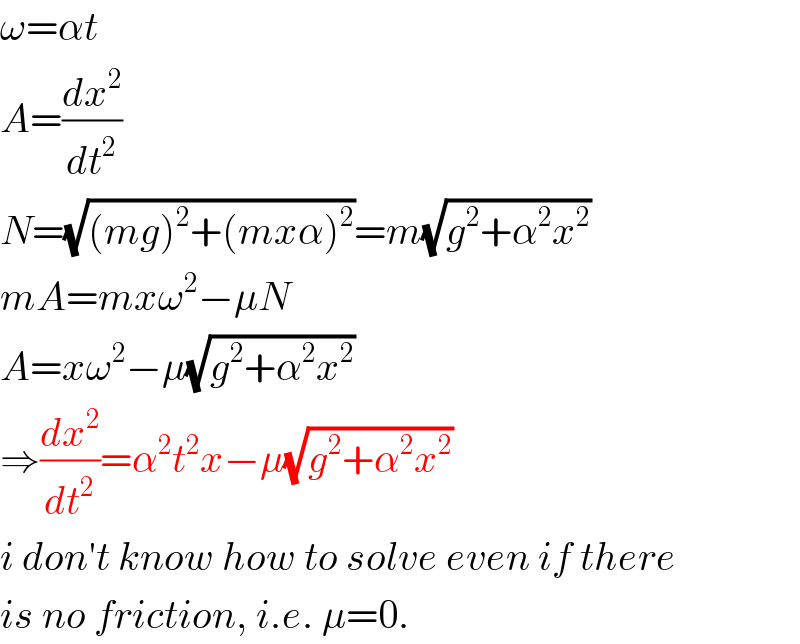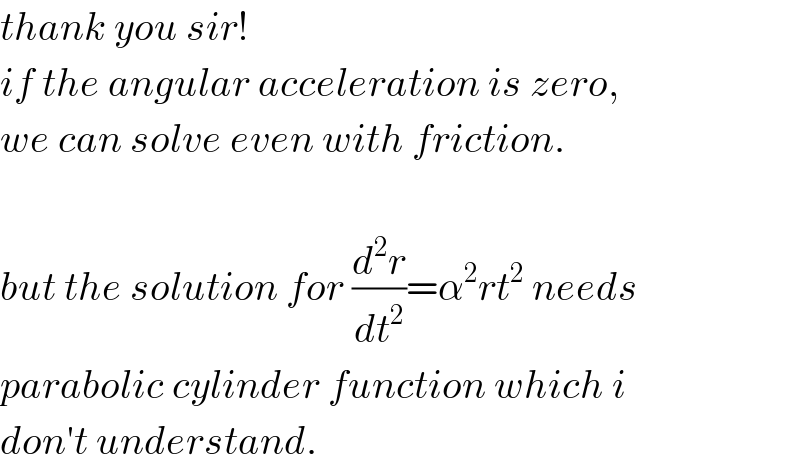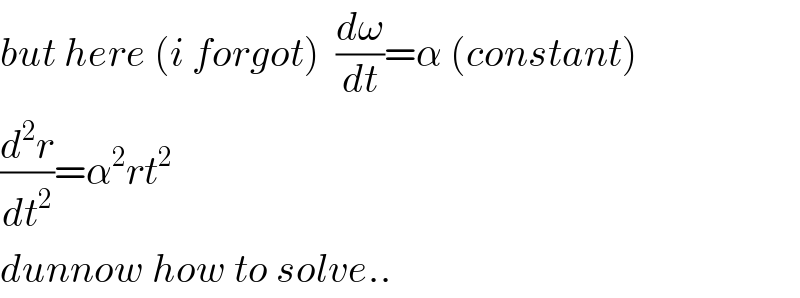
Question and Answers Forum
Question Number 73090 by ajfour last updated on 06/Nov/19

Commented by ajfour last updated on 06/Nov/19

Answered by mr W last updated on 06/Nov/19

Commented by ajfour last updated on 06/Nov/19

Answered by ajfour last updated on 12/Nov/19

Commented by mr W last updated on 12/Nov/19

Commented by ajfour last updated on 12/Nov/19

